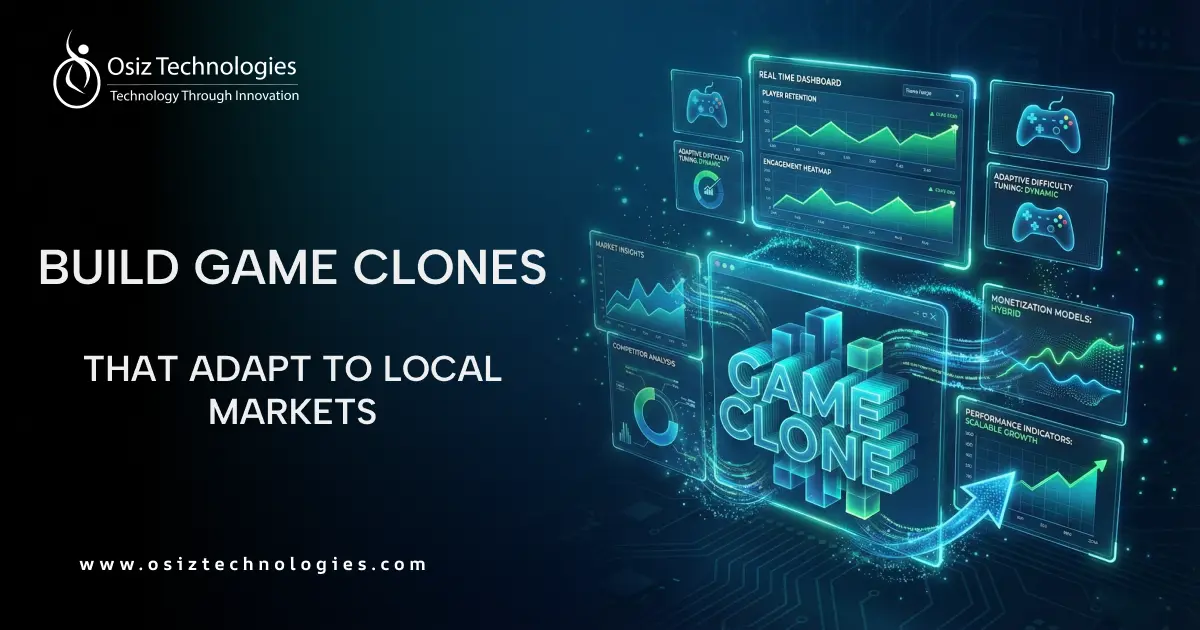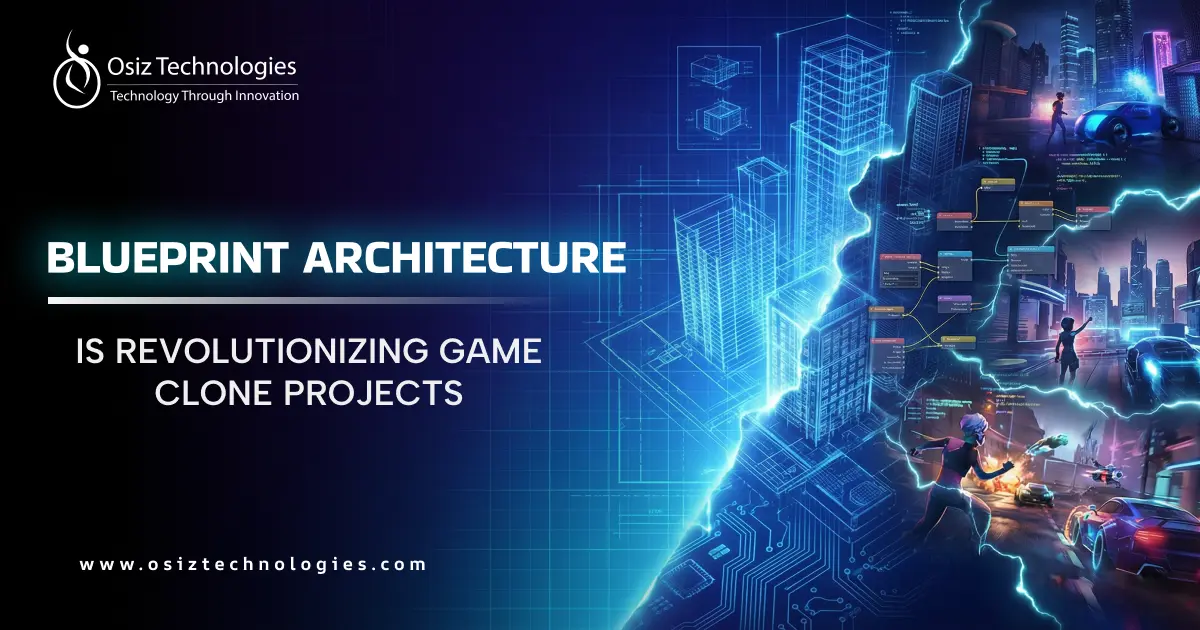It has rarely been this silent in terms of innovation, growth, and diversification as the gaming industry witnessed over the last few years, so it is now the best time in terms of how games are developed, played, and monetized. Exciting and groundbreaking changes are sure to emerge in the next five years. This is a peek at some of the key predictions forming the future of gaming based on technology, shifting user preferences, and emerging business models.
1. Rise of Cloud Gaming
It has already started changing the playing field by delivering high-quality gaming without the need for expensive hardware. The trend will boom in the next five years when the giants, including Microsoft, Google, and Amazon, are investing big in cloud gaming platforms. This technology will allow players to stream games on any device with an internet connection and increase access; to the console level of graphics now, on mobile and smart devices. This would also curb piracy, as games no longer require local installations and open the payment options to pay-per-hour, increasing engagement.
2. Higher Inclusion of VR and AR in Games
The future of immersive gaming has always been virtual reality, and augmented reality; more VR hardware is now affordable, and thus these technologies are more prominent. The next five years will bring even more polished VR/AR experiences. And it is expected that the studios will drop games designed particularly to cut and run with these immersive technologies. Meta and Sony have a lot more in store for you as they raise the bar of VR technology to new heights potentially offering a very lifelike experience. AR will merge virtual objects into the real world, enabling players to interact and engage in location-based gaming, more accessible to a larger population. You will see VR/AR transform RPGs and other adventure games to have the player's physical movement and to have more interactive environments.
3. Blockchain and NFT
They're here to stay, and they're going to get even more relevant to gaming, especially to in-game economies. Players will buy, sell, or trade digital assets like characters, skins, and weapons as NFTs that can be transferred between games or between platforms due to blockchain. In turn, blockchain gaming also allows for actual ownership over in-game assets in a manner that items acquired or purchased can be retained without the need for updates in the game or a shift in platforms. Blockchain in gaming will attract the ambitions of collectors as well as investors through decentralized economies and new revenue streams for game developers. This can change the paradigm of "play-to-earn" as much as it can mainstream virtual marketplaces.
4. AI Game Development and Experiences
AI has already greatly shifted the process of game design and game development. Its adoption is only bound to grow in the next few years. One of the new possibilities AI is going to bring into game development ranges from the creation of realistic NPCs with adaptive behaviors to procedurally designed worlds. Eventually, expect to have more games where the story will be driven through AI mechanisms with player choices dynamically changing the course of the narrative. AI is also going to enhance engagement from users through personalized experiences by analyzing the behavior of a user and offering them custom game levels, rewards, or challenges. AI-based content creation will reduce development costs and time for studios to achieve and deliver unique gaming experiences at a faster pace.
5. Growth of Mobile Gaming and 5G Connectivity
Mobile gaming has risen enormously in the last couple of years largely due to the increase in penetration rates of mobile phones and the improvement in processing power in mobiles. Over the next five years, 5G will become a foundation for some terrifically fast multiplayer and cloud-based games on mobile. Download and latency will be faster, and connectivity will be much more reliable. It is indeed highly probable that mobile gaming will incorporate some features that have been considered exclusively for games on both console and PC platforms, including real-time interactions between millions of players worldwide and graphics rendering. This will make mobile gaming even more competitive, and attractive to more developers, and the envelope will be pushed on what mobile games could achieve. A much wider variety of genres with AAA-quality games will be seen on mobile.
6. Metaverse and Social Gaming
Metaverse: shared virtual worlds where people can interact socially, work, and play - has been gaining traction. The metaverse will look like a full-blown evolution in the next five years as immersive, interconnected experiences where players can engage in a range of activities within one unified ecosystem, spanning gigantic platforms like Roblox and Fortnite already testing waters with virtual concerts, events, and brand collaborations. Social gaming will continue to rise because more games will have chat functionality, social spaces, and cooperative game modes to allow players to bond and create actual communities. As the meta continues to fascinate people to join and increase their digital lives, it will drive social and community-oriented games.
7. Surging Popularity of Subscription-Based Gaming
Increasing flexibility and affordability through subscription-based gaming services will be appealing to gamers. Other services, such as Xbox Game Pass, PlayStation Now, and Apple Arcade, have already shown the appeal of a monthly pass to access a gigantic library. More studios and platforms may follow this model over the next five years, thus offering players more extensive catalogs without a terrible upfront cost for buying each title. Additionally, subscription models will favor cross-platform gaming because it will enable gamers to continue playing their games on other devices. This trend will redefine monetization for games attracting casual gamers while providing developers with steady streams of revenue.
8. Greater Access to Games
As the industry continues to grow worldwide, it increasingly becomes indispensable for game developers to make sure their products are accessible and inclusive. For example, accessibility features such as adaptive controllers, custom game settings, and closed captions are already making gaming more inclusive for players with disabilities. In the next five years, gaming companies are going to work on ensuring that their games open up the experience to diverse players with options to make modifications to game controls, visuals, and difficulty. Game development studios will also design experiences based on constraints of time or hardware, always considering the diverse nature of gamer needs and preferences.
9. Real-Time Analytics and Player Feedback Loops
Game developers will increasingly rely on analytics close to real-time and mechanisms for feedback from players to understand what is going on in player behavior, preferences, and pain. With analysis of their data, studios can fine-tune games to make them enjoy more, smooth out difficulties, and provide in-game rewards according to habit. The studios will be developing more engaging and responsive games because of this data-driven approach and frustration or loss of interest by the players is unlikely. In addition, a real-time analytics system can provide timely updates from studios to fix bugs and develop new content about what will maintain the players' interest.
Conclusion
Osiz is the best game development company that brightens the future with rapid technological advancement spearheaded by the demand for rich, interactive, and emotive experiences and the need for people to experience better engagement with their roles. Within five years, access to top-quality games will seamlessly be accessed across different platforms, and a new monetization model like NFTs and subscription services will enhance game player engagement and generate additional revenue in the market. Therefore, commitment to integrating cutting-edge technologies like AI and blockchain will provide richer dynamics in the game, redrawing the lines of what can be possible in virtual economies and gameplay. Whether through VR worlds, blockchain-based economies, or optimized mobile experiences, Osiz is at the forefront of breaking barriers to create a gaming world that is inclusive, interactive, and endlessly innovative for players and developers alike.
Listen To The Article












